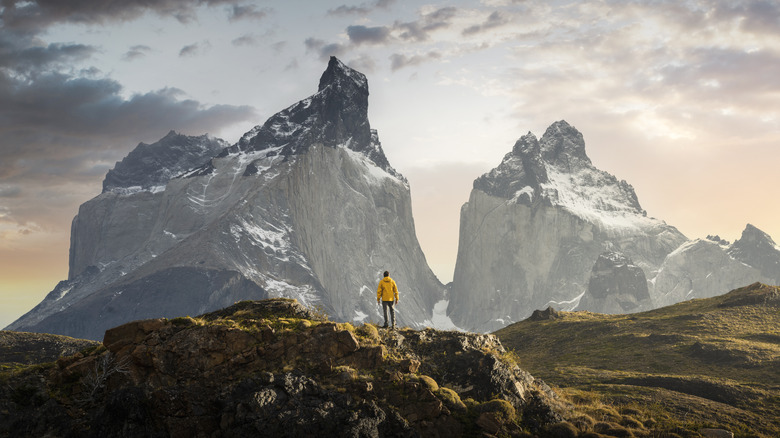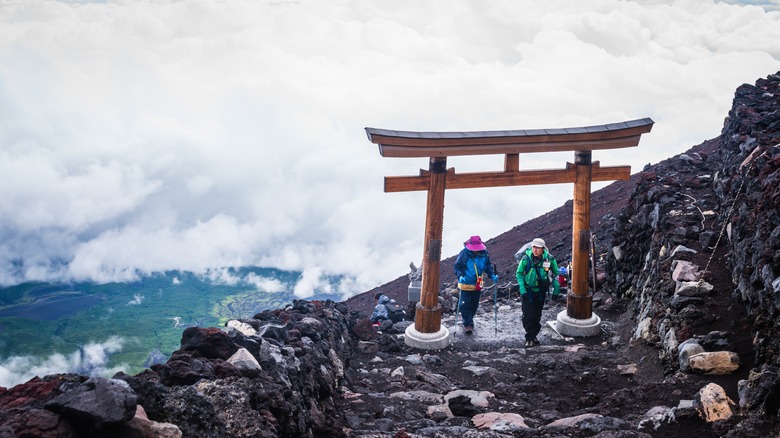The Horrifying Reason Hikers Can Experience Hallucinations At High Altitudes
Hiking at high altitudes can be risky, especially if you don't give your body time to acclimate. Due to reduced breathable oxygen in the air, you may experience a headache, fatigue, dizziness, and vomiting — common symptoms of altitude sickness — when high above sea level. However, fighting altitude sickness isn't the only thing you need to worry about during your trek. You might also be at risk of psychosis when hiking and mountain climbing.
Whether you're visiting Machu Picchu or going on a mountain hike in search of the best views in Switzerland, you may notice your mind playing tricks on you. A 2017 study published in Psychological Medicine identified psychotic episodes in hikers that occurred independent of altitude sickness. During the episodes, the travelers experienced hallucinations, delusions, depersonalization, and other symptoms indicating a break from reality. In its introduction, the study included an account from one hiker who hallucinated a man named Jimmy. Jimmy appeared to keep the hiker company during a climb on Mount Everest, until he seemingly vanished into thin air.
The researchers theorized that high-altitude psychosis could be triggered by "social and sensory deprivation," as well as a lack of oxygen. Low oxygen levels are the culprit behind altitude sickness, too, yet many who experience psychological disturbances report no headaches or nausea. Once hikers make their descent, their psychosis symptoms typically subside, suggesting that there's little risk of long-term consequences.
What high-altitude psychosis means for your next hike
There are ways to physically prepare for trips to high-altitude cities, but it's not as easy to stave off high-altitude psychosis. Katharina Hüfner, the lead researcher in the 2017 study, explained to TIME, "Since we don't know what predisposes or precipitates this syndrome, we cannot give any advice on how to avoid it at this point." Still, awareness about the temporary condition can help you make smarter choices when making your ascent.
First, it's a good idea to hike with a companion when possible. This could keep hallucinations at bay, considering the researchers identified social deprivation as a possible trigger for high-altitude psychosis. Even if you do experience the syndrome, having a friend around can help keep you grounded and out of danger.
You can also practice "reality testing" during your hike before trusting your own visions or thoughts. For instance, ask yourself if your experience fits the context and, if you have doubts, look for evidence that what you're seeing or hearing may not be real (such as a stranger who keeps appearing and disappearing or a fellow hiker who's wearing a tank top on a cold, snow-covered trail). It may also help to keep a plan of your hiking route so you don't get sidetracked by a voice or figure encouraging you to follow a dodgy-looking path. If you find yourself imagining things in the middle of your trek, it's wise to stop before ascending further, even if it means cutting your adventure short.

